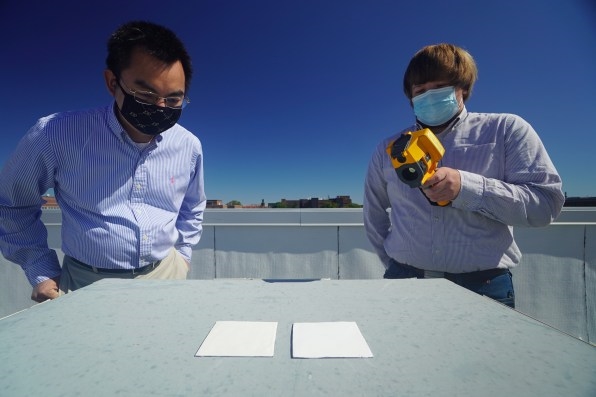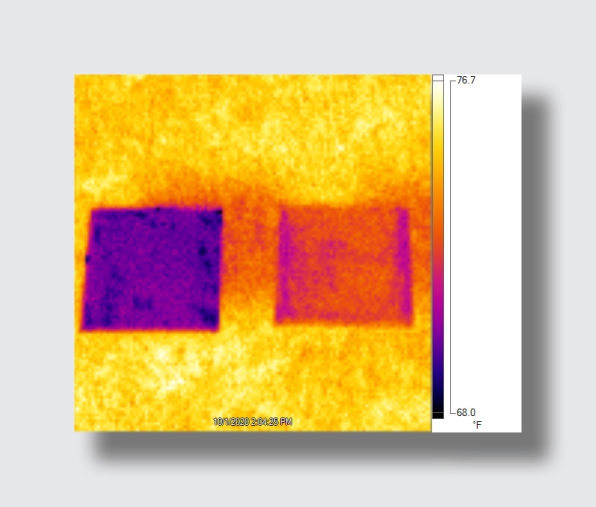
[Photo: Jared Pike/Purdue University]
A paint that can reflect 95.5% of light can create surfaces that are extremely cool to the touch—up to 18 degrees Fahrenheit cooler than they might otherwise be. And at the scale of buildings, that temperature savings adds up. “The first application we can think of is on the roof,” Ruan says. Painted on top of your average 1,076-square-foot ranch house, the researchers estimate that a coat of super-white paint alone could save an estimated $1 a day on your electric bill during summer months. En masse, Ruan believes that this paint could make a dent in global warming, because the light (and associated heat) that hits roofs could reflect the rising heat of urban cities all the way back into space. He even suggests that bare land could be painted in his white mixture to help control global temperatures.
But is this vision of cool-touch, gleaming-white cities too good to be true? At least partly, yes. Previous research has found that there are several catches to white roofs: Reflected light into the sky can reduce the natural shade of cloud cover. White roofs, while handy in the summer, don’t generate desired heat in the winter—so the AC savings can just roll over to your heating bill in temperate climates, negating any benefit. And finally, using solar panels instead of white roofs offers a building cooling effect while also harnessing clean energy, which saves us from pollution (and associated global warming) caused by power companies.

[Photo: Joseph Peoples/Purdue University]
Indeed, it’s hard to argue that any pricey skyscraper rooftop should be painted white on top instead of housing solar panels. However, given the massive up-front cost of solar and its incompatibility with many roofs, homeowners in hot climes may prefer spending a few hundred bucks to paint their roofs white for an easy green fix. (Yes, you can paint your shingles!)
As of now, Ruan is in talks to license his formula to paint manufacturers. One day, he imagines founding a company to produce paint himself. Because calcium carbonate is so cheap, the paint should be comparable in price to any other paint on the market (most paints use a base of the more expensive titanium oxide) and may eventually be even cheaper. But before advocating for us to start painting our cities white, Ruan is working on two more points of research.
First, he wants to validate that this ultra-white paint can endure the elements as well as any commercial alternative. Second, he hopes to actually work other pigments into the mix. “I know some people don’t like white, even for their roof,” Ruan says. With other shades, he adds, “the cooling won’t be as good as white paint, but we believe we can make it better than other colored paint.”
(58)